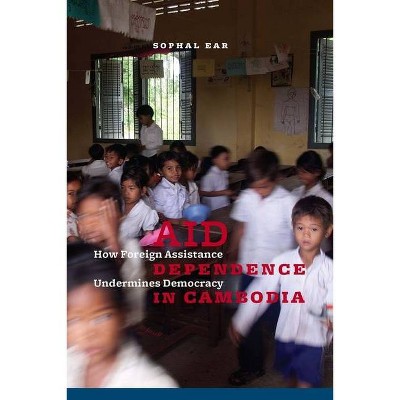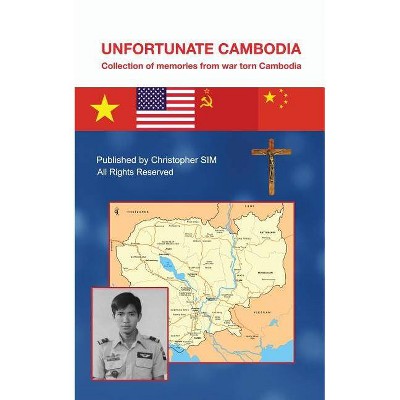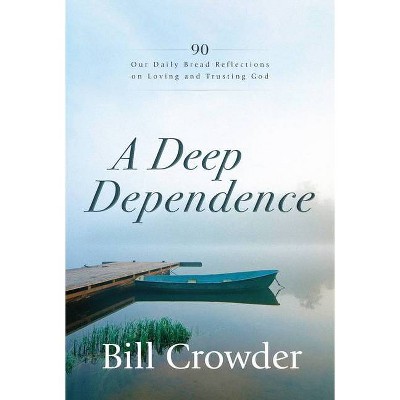Aid Dependence in Cambodia - by Sophal Ear (Hardcover)

Similar Products
Products of same category from the store
AllProduct info
<p/><br></br><p><b> About the Book </b></p></br></br>"Dr. Ear argues that the international community has chosen to prioritize political stability above all other governance dimensions, and in so doing has traded a modicum of democracy for an ounce of security. Focusing on post-1993 Cambodia, Ear explores the unintended consequences in post-conflict environments of foreign aid. He chooses Cambodia both for personal reasons--which infuses an academic analysis with a compelling sense of urgency--and because it is one of the most aid-drenched countries in modern history. He tries to explain the relationship between Cambodia's aid dependence and its appallingly poor governance. He concludes that despite decades of aid, technical cooperation, four national elections, no open warfare, and some progress in some parts of the economy, Cambodia is one broken government away from disaster."--Publisher's description.<p/><br></br><p><b> Book Synopsis </b></p></br></br><p>International intervention liberated Cambodia from pariah state status in the early 1990s and laid the foundations for more peaceful, representative rule. Yet the country's social indicators and the integrity of its political institutions declined rapidly within a few short years, while inequality grew dramatically. Conducting an unflinching investigation into these developments, Sophal Ear reveals the pernicious effects of aid dependence and its perversion of Cambodian democracy.</p><p>International intervention and foreign aid resulted in higher maternal (and possibly infant and child) mortality rates and unprecedented corruption by the mid-2000s. Similarly, in example after example, Ear finds the more aid dependent a country, the more distorted its incentives to develop sustainably. Contrasting Cambodia's clothing sector with its rice and livestock sectors and internal handling of the avian flu epidemic, he showcases the international community's role in preventing Cambodia from controlling its national development.</p><p>A postconflict state unable to refuse aid, Cambodia is rife with trial-and-error donor experiments and their unintended consequences, such as bad governance and poor domestic and tax revenue performance--a major factor curbing sustainable, nationally owned growth. By outlining the terms through which countries can achieve better ownership of their development, Ear offers alternatives for governments still on the brink of collapse, despite ongoing dependence on foreign intervention and aid.</p><p/><br></br><p><b> Review Quotes </b></p></br></br><br>... Sophal Ear's logical, yet personal account of the impact that international foreign aid has on Cambodia, the country of his birth, should cause the entire aid community to reflect inwardly.--Small Wars Journal<br><br>A pungent, grounded contribution...--International Journal of Asian Studies<br><br>An excellent introduction to the literature on development on the region (and globally)... Everyone hoping to do some good in Cambodia ought to read this book...--Journal of Southeast Asian Studies<br><br>...offers valuable lessons not just for policy-makers working on Cambodia but also for other countries emerging from conflict or upheaval.--Sebastian Strangio "Asia Times "<br><br>[Ear's] concise study provides valuable insights into the role of Official Development Assistance (ODA) in promoting governance in post-conflict societies.--D. Gordon Longmuir "Pacific Afairs "<br><br>An important and timely contribution to the field. It raises awareness around Cambodia, and sheds light on what is otherwise widespread apathy and complacency.--Peter Tan Keo "The Diplomat "<br><br>Khmer Rouge survivor Sophal Ear is uniquely qualified to address the issue of aid and dependence in developing countries. Much more than academic criticism, <i>Aid Dependence in Cambodia</i> also charts a path for Cambodian reform. Although it is highly unlikely, Cambodian leaders would be wise to heed Ear's advice.--Peter Maguire, author of <i>Facing Death in Cambodia</i><br><br>Sophal Ear's <i>Aid Dependence in Cambodia</i> is both passionate and level-headed. Inspired by his family's history and based on extensive field interviews and careful case studies, it offers a sustained criticism of how aid policies have contributed to dependence and helped undermine fragile democracies. There are valuable lessons here for all countries attempting to build peace and development with international assistance.--Michael Doyle, Columbia University<br><br>Sophal Ear's work stands out for its social science rigour, its cohesion, as well as its probing quality, offering a new standard of scholarship on aid dependence not only applicable to the Cambodia case but easily replicable around the developing world.--Geoffrey C. Gunn "Asian Affairs "<br><br>Using cross-national statistical evidence and his immense knowledge of Cambodian society, Sophal Ear has produced an important book on the perverse effects of development aid on governance. If this could be the starting point from which future discussions began, there would be a much greater chance of outsiders truly helping poor countries to develop.--James Robinson, Harvard University<br><p/><br></br><p><b> About the Author </b></p></br></br>Sophal Ear is an assistant professor of national security affairs at the U.S. Naval Postgraduate School, where he teaches courses on postconflict reconstruction and political economy. Previously, he worked for the World Bank and the United Nations. A graduate of Princeton University and the University of California, Berkeley, he arrived in the United States from France as a Cambodian refugee at the age of ten.
Price History
Price Archive shows prices from various stores, lets you see history and find the cheapest. There is no actual sale on the website. For all support, inquiry and suggestion messagescommunication@pricearchive.us


















